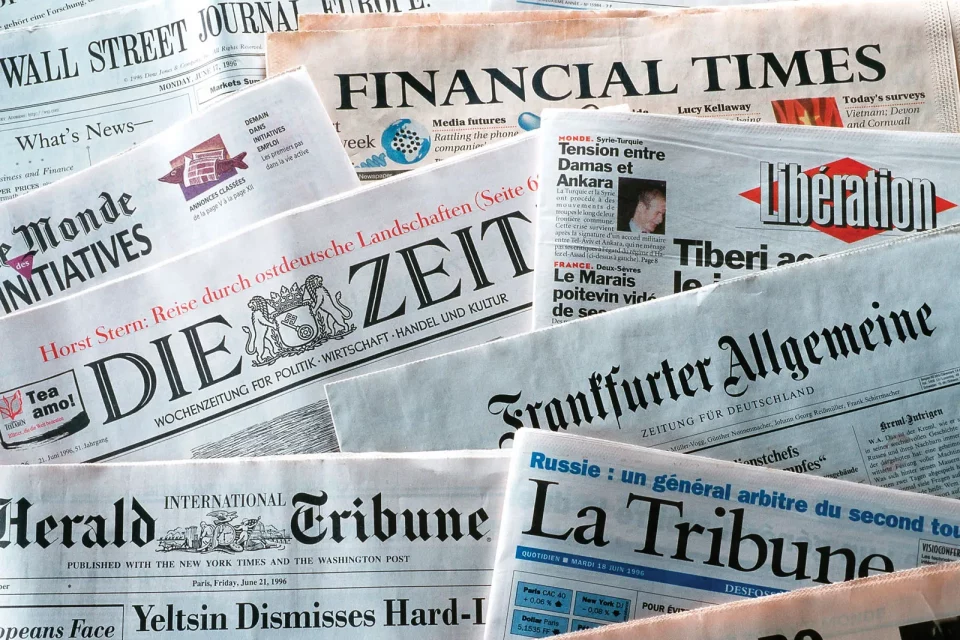The Press, the News and Journalism have collectively been great enemies of all governments throughout history, democracies and dictatorships alike. Journalists and reporters write and say things that sometimes criticize the government. When information is leaked (scandals, government secrets, etc) it can hinder the State. The press always influenced public opinion and in the 21rst century it does more than ever. Throughout history the solution to this has been to either shut down hostile press or take it over and only report things that would be beneficial to the government.
Currently Norway is ranked first in the RSF, reporters without borders, Worldwide Press Freedom Index. Freedom of press in Norway has existed since the Constitution of 1814. Most of the Norwegian press is privately owned, yet the State provides support. As in other western democracies the press in Norway is accused of often being biased towards the political left. This could be due to the fact that most Norwegian editors have leftist views.
( sources: Reporters without Borders and BBC )
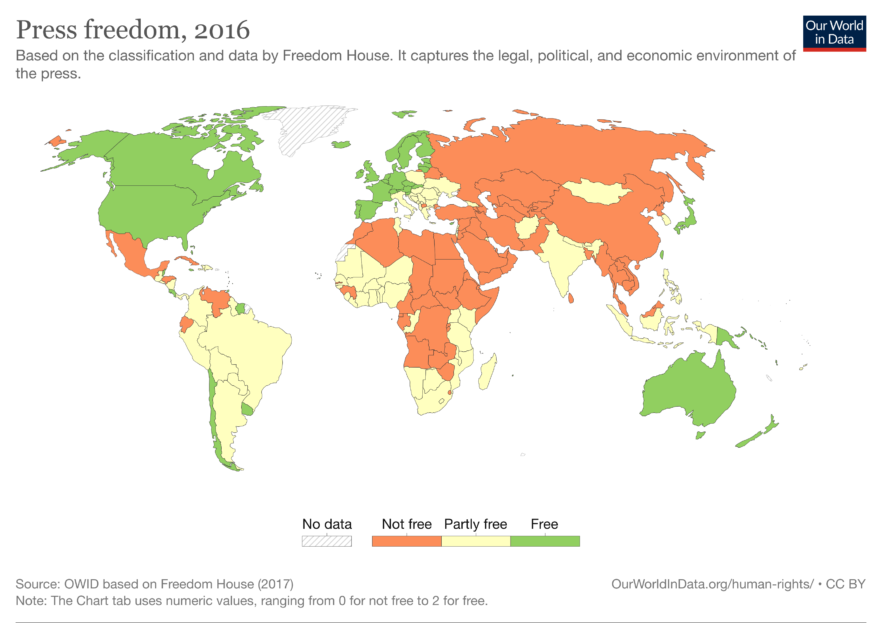
The country that currently has the least freedom of press in the world is North Korea. The media in North Korea is completely controlled by the state and only allows speech that supports it and the Workers’ Party of Korea. All journalists and Editors adhere to the WPK and news is incredibly censored. The media also upholds a cult of personality for the Kim family. All this, despite the fact that freedom of speech is guaranteed by article 67 of the North Korean Constitution.
( sources: Wikipedia and Reporters without Borders )
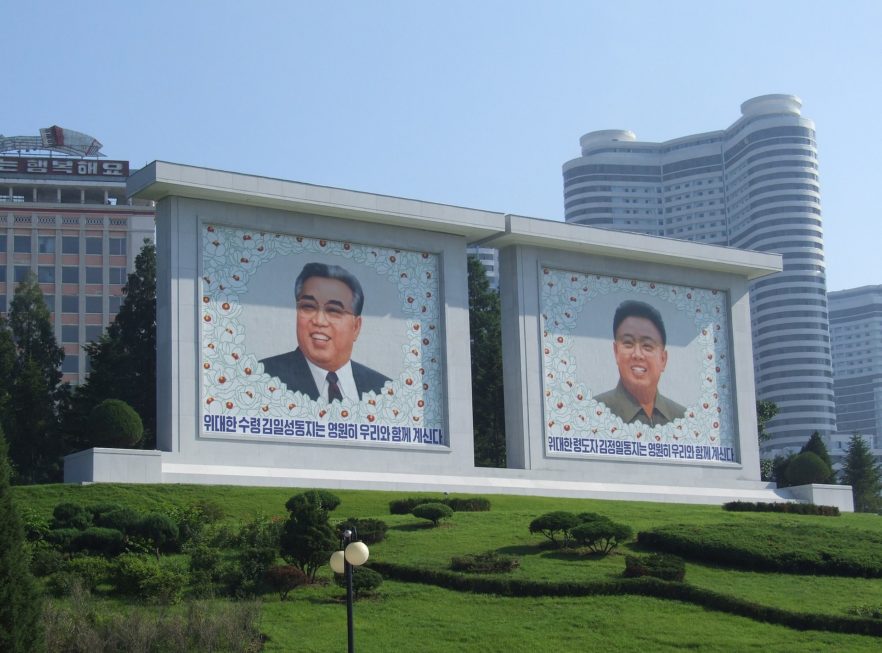
A great example of censorship is the Empire of Japan. With the Meiji restoration in 1868 the Imperial government began censoring anything about liberal democracy and hostility to the Emperor. Later the Press Ordinance of 1875 gave the Home Ministry the power to ban or shut down any newspaper. In 1937 with the outbreak of the second Sino-Japanese war, the press was taken over by the military. The Ministry of the Army, the Ministry of the Navy and the Home Ministry held regular meetings with Japanese editors and Journalists to advise them on what to publish. Any photographs or description of atrocities committed by the Kwantung Army ( Japanese Army) were censored. Dead bodies of Chinese soldiers and events such as the Rape of Nanjing by the Japanese were not to be described to the public. The Imperial Japanese media became simply another tool of Propaganda. Thus allowing the government to fully control the press. In 1941 with the General Mobilization Law, freedom of press was completely eliminated. In 1942 all newspapers were ordered to merge or be completely eliminated.
( sources: Hoover Institution and Wikipedia )
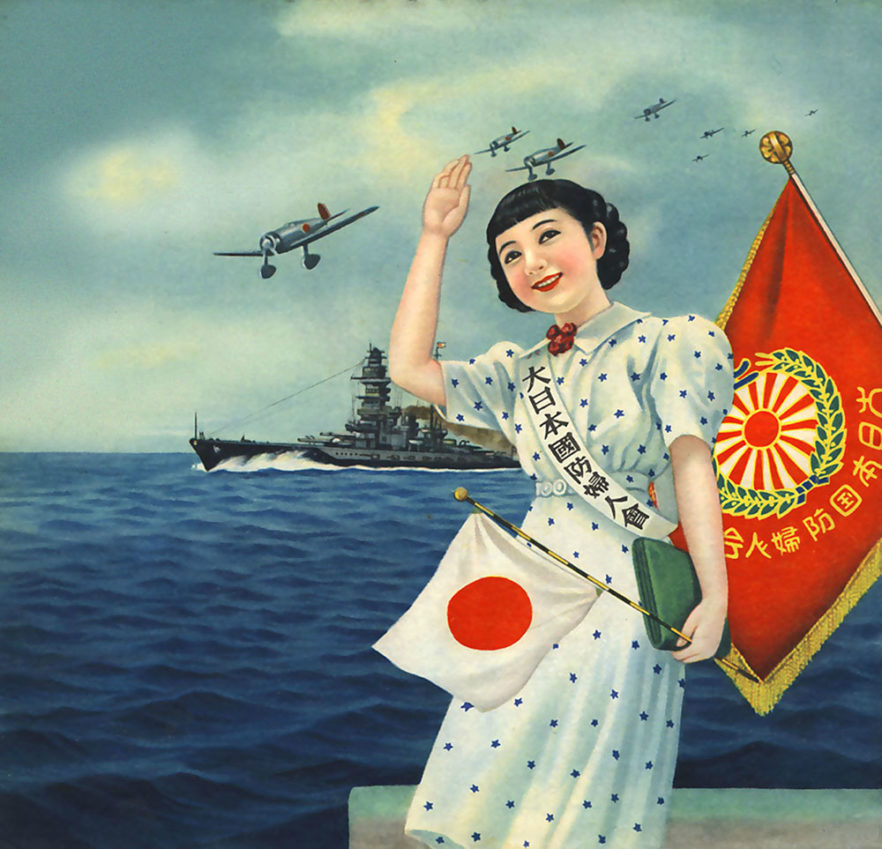
The situation was similar in Francoist Spain. From 1936 to 1975, the Caudillo, Francisco Franco mandated censorship in Spain. In the region of Catalonia, which was a Republican bastion during the civil war, there underwent extensive censorship and repression. The Catalan identity was removed from education, newspapers and magazines. Publishing anything in the Catalan language was made almost impossible. By doing this Franco wished to rid Spain of the Catalan culture and language. Another one of the goals of the Francoist Government was to eliminate any form of “political and cultural liberalism”, thus the state controlled all forms of media (literature, films,…). This was done on grounds that political and social pluralism presented threats to the unity of the Spanish State.
( sources: Wikipedia )
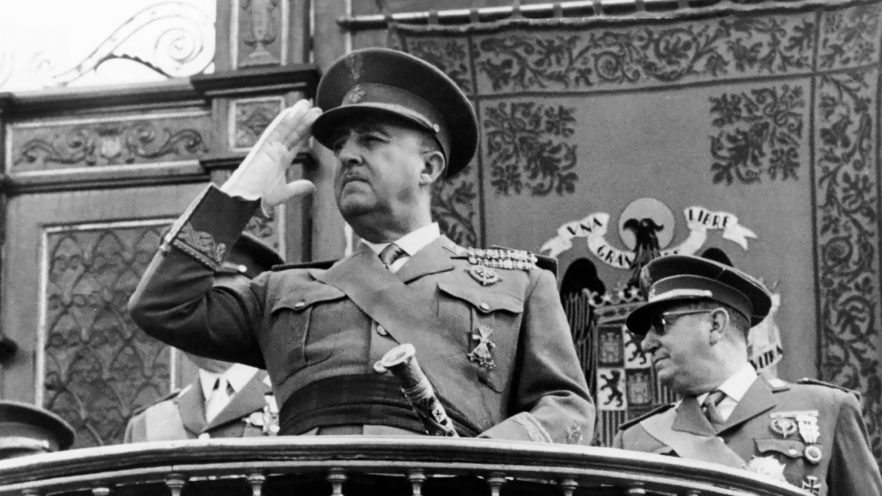
Allowing the press to be completely controlled by the state or certain individuals is dangerous because the government can influence what the people think. Diversifying our sources is truly important to be well informed.
Further Reading:
Japanese media throughout modern history
The Kim familys’ cult of personality
The Legacy of Censorship under Franco
Reputable Norwegian news:
By Laird Balas

This work is licensed under a Creative Commons Attribution-ShareAlike 4.0 International License, unless otherwise licensed by original authors.

